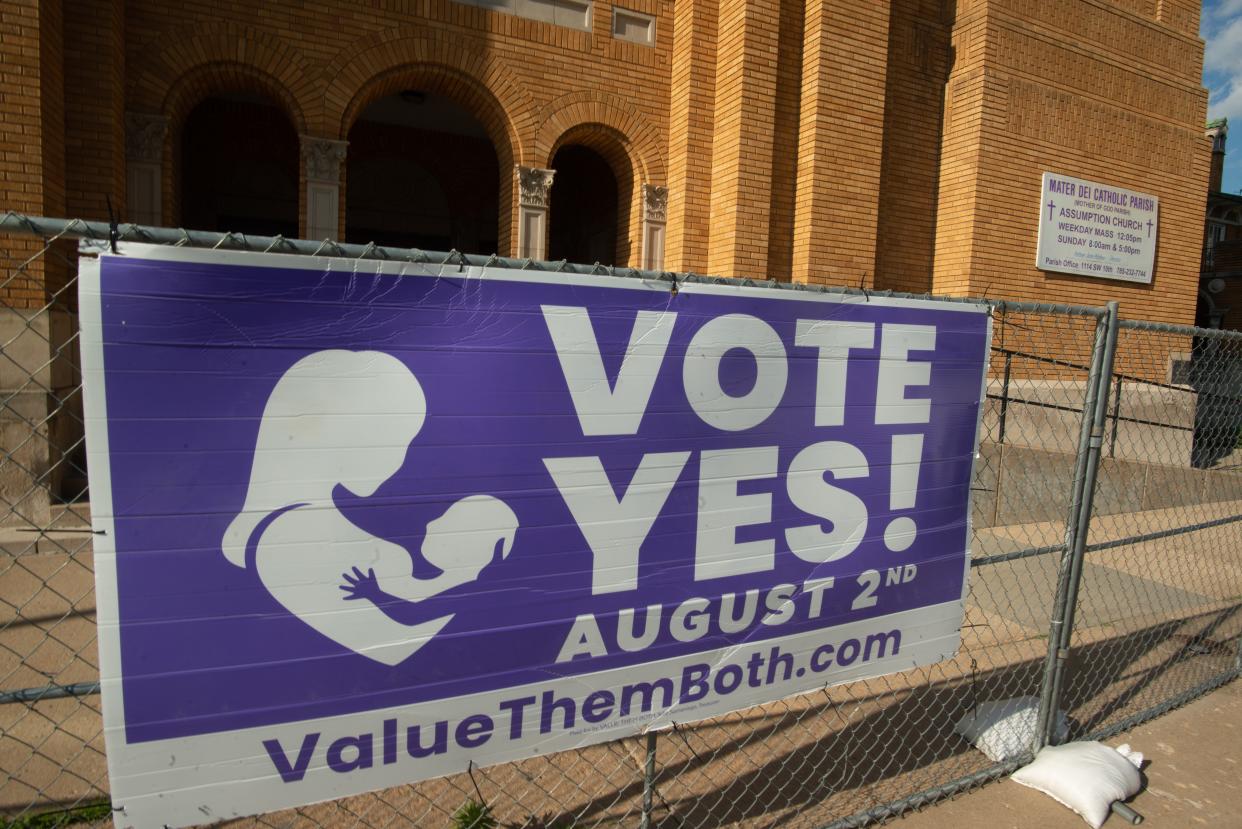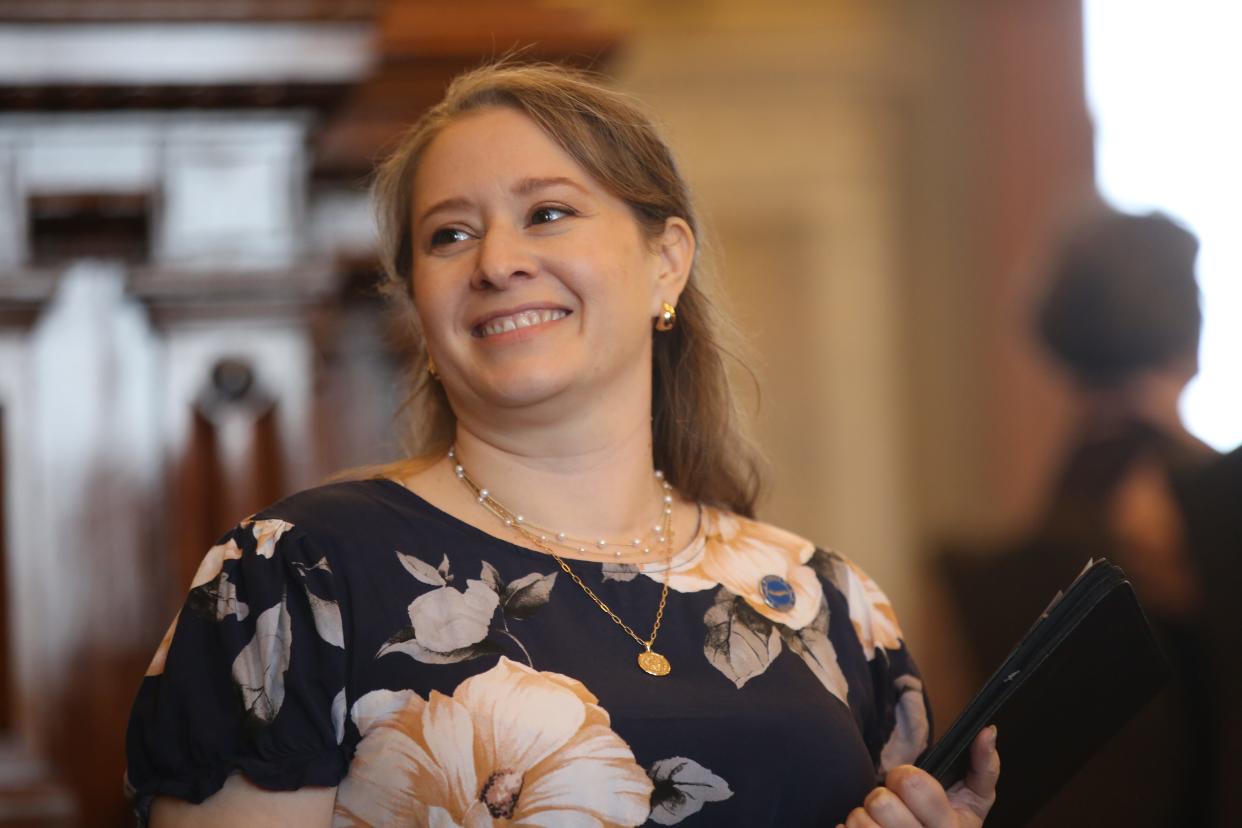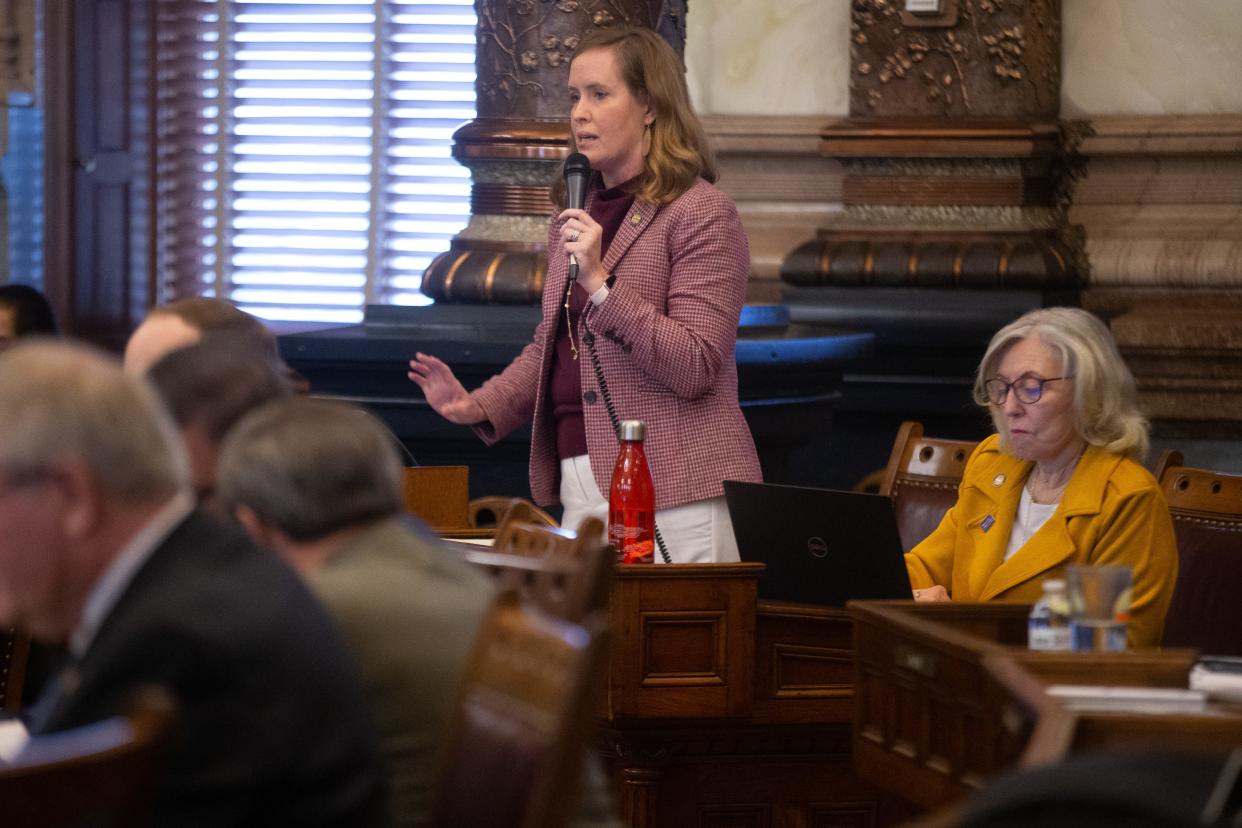Kansas governor vetoes anti-abortion bills, but legislators have enough votes to overturn
Gov. Laura Kelly vetoed two abortion bills on Friday; one would have created the crime of coercion to obtain an abortion and the other requires patients to state the reason that they obtained an abortion which will be compiled and submitted to state agencies and the legislature.
After the so-called Value Them Both campaign in 2022, when Kansans voted against changing the constitution to criminalize abortion, the Kansas Legislature has sought more narrow paths to limit the practice in the state. Kelly cited the referendum in her veto message on the pair of abortion bills that reached her desk.
"Kansans spoke loud and clear in August 2022. Voters do not want politicians getting between doctors and their patient by interfering in private medical decisions," Kelly said.

Last year the state passed two new laws that required physicians to render care to infants who are “born alive” and to share medically dubious claims that abortifacient drugs like mifepristone are reversible. Abortion providers said there have been zero cases of infants being born alive in the 11 years they’ve tracked it.
A proposed ban on abortion, with a carveout for abortions medically necessary to preserve the mother’s life, failed this session and didn’t get support from either the Republican leadership or statewide advocacy groups.
Anti-abortion bills continued this session, and some bills appear to have the two-thirds majority needed to override Kelly's vetoes.
Coercion to obtain an abortion
House Bill 2436, which creates the crime of abortion coercion, passed with apparent supermajority support. If convicted of coercion to obtain an abortion, the offender can be punished by up to a year in prison and a fine between $500 and $5,000 – with more severe sentences if the father is an adult and the mother a minor.
Advocates have characterized the new crime as a tool to use against human traffickers.
"What we're doing is we're standing up for women who have made it clear that they want to keep their baby, and they're being threatened and pushed into aborting," said Rep. Rebecca Schmoe, R-Ottawa, during the House’s debate on the bill. "A lot of that has to do with human trafficking."

A House Committee amended the bill to include other forms of coercion regarding reproductive autonomy, including coercing someone into a pregnancy or interfering with their contraceptive use. But that version was abandoned by the Republican legislature who didn’t support the amendments.
Critics of the bill said it’s definitions for coercion were so broad that someone threatening to divorce a partner if they have a child could be grounds to prosecute.
"If you don't agree on a pregnancy outcome for abortion, I do think that should be able to be cause for divorce," Rep. Jo Ella Hoye, D-Lenexa said during the House debate on the bill.
The bill got enough votes that it's likely to overcome the governor's veto. Like Hoye, Kelly criticized the bill for being too broad.
“While I agree that no one should be coerced into undergoing a medical procedure against their will, it is already a crime to threaten violence against another individual," Kelly said. “Additionally, I am concerned with the vague language in this bill and its potential to intrude upon private, often difficult, conversations between a person and their family, friends, and health care providers."
House Speaker Dan Hawkins, R-Wichita, characterized Kelly as "uncompromising" in her support for abortion and vowed to override her veto.
"Coercion is wrong, no matter the circumstance, and Laura Kelly’s veto is a step too far for common sense Kansans. House Republicans are ready to override her radical stance, help break these cycles of abuse, and protect Kansas women,” Hawkins said.
Abortion reporting
House Bill 2749 mandates that patients must give their primary motivation for seeking an abortion prior to performing an abortion. It also mandates questions about age, marital status, residency, race, financial status, home life and the method of abortion used – several of which are already collected.
“We always want data, and it would be good to know, for the [Kansas Department for Children and Families] to know, how many women were choosing abortion because they couldn’t financially pay for the child, or perhaps they were being forced to, and who was forcing them," said Sen. Beverly Gossage, R-Eudora, during debate in the Senate. "This is something we should probably know, maybe we could help these women better.”
Democrats largely opposed the bill, saying the questions are unnecessary and questioning how the legislature would use the collected data.
“The underlying aim of this bill is to harass abortion patients and providers with invasive questioning and reporting with the ultimate end goal of eliminating abortion in Kansas,” House Minority Leader Dinah Sykes, D-Lenexa, said while debating the bill.

The bill passed with enough votes to overturn Gov. Laura Kelly’s veto unless legislators change their vote on the issue. Kelly called the bill invasive and unnecessary when issuing a veto.
"There is no valid medical reason to force a woman to disclose to the legislature if they have been a victim of abuse, rape, or incest prior to obtaining an abortion. There is also no valid reason to force a woman to disclose to the legislature why she is seeking an abortion," Kelly said.
Hawkins again said he will attempt an override, and that the policy could help inform public debate and policy.
"Voluntary and anonymous data collection that even the Guttmacher Institute says can help ‘inform public debate and policy’ should not be suppressed by the Governor and her irrational fears of offending the for-profit pro-abortion lobby," Hawkins said.
Funding for pregnancy resource centers
The Pregnancy Resource Act makes donations to certain pregnancy resource centers, which provide services to expecting parents often for free, tax deductible and exempts the centers from sales taxes. Pregnancy resource centers are often criticized for appearing as neutral health care providers that aren't forthcoming about their anti-abortion leanings.
Rep. Tom Sawyer, D-Wichita, said the 70% tax credit is far above what is available for most charitable donations. He said an $1,000 donation usually get someone a maximum of a $57 tax credit, but this bill would amount to a $700 tax break. The total amount of tax credits available is capped at $10 million.
"If you want to try to encourage people not to get abortions, it's your right to do it. But we should not be so generously funding that with state funds and giving them a sales tax exemption," Sawyer said.
Other Democratic opponents took issue with pregnancy resource centers getting large tax breaks despite relatively loose regulations monitoring them. In the bill, pregnancy resources centers must have a working phone line, have a physical office, be open for at least 20 hours a week and offer free services.
"I am more concerned about who is regulating these facilities. I mean, we're talking about $10 million, and health care professionals who may just be volunteers, they don't necessarily have to be have an active license or what regulations they are undergoing in regards to what services they provide," said Rep. Oropeza, D-Kansas City.
The Pregnancy Resource Act is bundled in a bill that also creates an adoptions savings account, which allows prospective adoptive parents to set aside pre-taxed money for expenses relating to adoption and parenting. Democrats broadly spoke in favor of the portion of the bill concerning adoption, but few voted in favor of House Bill 2465 due to its provisions on pregnancy resource centers. It passed with apparent veto-proof majorities.
Abortion measures that didn't pass
Other abortion bills failed to make it to the Governor’s desk before the legislature adjourned. A bill that would’ve required child support payments to start at conception passed the house but didn’t get a vote in the Senate. Since it already passed one chamber as a conference committee report, the Senate could vote on it after returning from their three-week break.
Another bill that would’ve forced abortion patients to get an ultrasound didn’t reach either chamber, and stalled in committees without getting a hearing. It also required physicians to provide sonograms at no additional cost and to describe the developmental state of fetuses to patients or risk civil lawsuits.
Though abortion has been controversial in the state, moderate and conservative Republicans have tended to support measures to the point of supermajority as long as it doesn't rise to a statewide ban. Often that’s due to an expected challenge by the courts rather than ideological differences, which in 2016 found that Kansas women have a right to abortion during Hodes and Nauser v. Kansas.
“Sometimes allies in the war disagree on battle tactics," said Sen. Mike Thompson, R-Shawnee, when voting against Senate Bill 286, a near-total ban on abortion. "On multiple occasions over the past year or so, I’ve explained to my allies, who are the proponents of Senate Bill 286, why hearing this bill would be detrimental to achieving our mutual goal of overturning the Hodes decision and protecting life in Kansas.”
This article originally appeared on Topeka Capital-Journal: Kansas Legislature expected to override veto of anti-abortion bills
